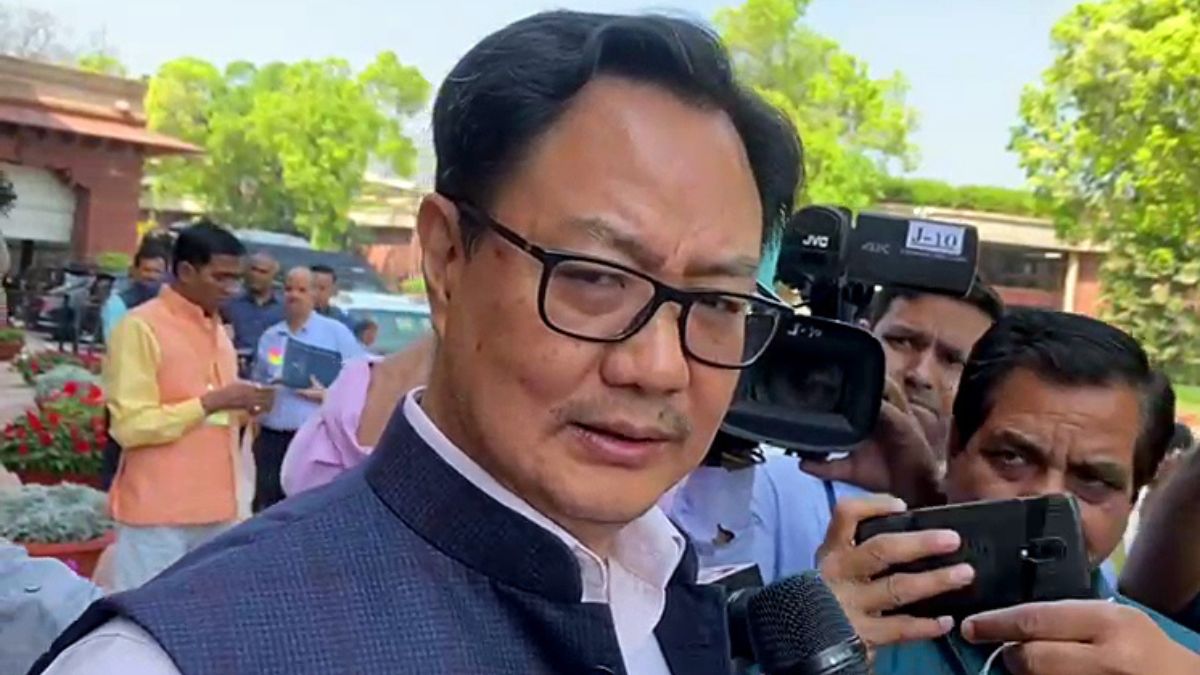- By Aashish Vashistha
- Tue, 10 Sep 2024 12:48 PM (IST)
- Source:JND
Union Minister Kiren Rijiju has called out contentious Islamic preacher Zakir Naik, asking him not to mislead Indian Muslims regarding the Waqf Amendment Bill. The minister also said that the people of the country have the right to have an opinion.
Taking to X, formerly Twitter, Rijiju reacted to Naik’s tweet by sharing some videos and said, "Please do not mislead the innocent Muslims from outside our country." "India is a democratic country and people have the right to their own opinion. False propaganda will lead to wrong narratives," he further added.
Please do not mislead the innocent Muslims from outside our country. India is a democratic country and people have the right to their own opinion. False propaganda will lead to wrong narratives. https://t.co/3W3YwtyJjI pic.twitter.com/LwV9Jh1YTg
— Kiren Rijiju (@KirenRijiju) September 10, 2024
The minister’s response comes after Zakir Naik in an X post asked Indian Muslims to “stand together to defend the sanctity of Waqf” and “reject the Waqf Amendment Bill”.
Naik also emphasised that at least five million Muslims should send their rejection of the bill. “Save Indian Waqf Properties, Reject The Waqf Amendment Bill! Let’s stand together to defend the sanctity of Waqf and ensure its preservation for future generations,” he said.
“This is an urgent call to the Muslims in India to stop this evil which breaches the sacred status of waqf, and has evil repercussions on the future of Islaamic institutions. We will bear Allah’s wrath and the curse of subsequent generations, if we allow this bill to pass. Stop the evil or bear its liabilities in this life and in the Hereafter! Say no to the Waqf Amendment Bill!” his X post read.
All About Waqf Amendment Bill
The Waqf Amendment Bill, which is currently under scrutiny, aims to reform the registration system for Waqf properties by introducing a centralized portal. This bill has now been sent to a joint parliamentary committee for review.
The Waqf Board asserted claims over 138 properties in New Delhi between 1970 and 1977, that were acquired for building New Delhi by the British government. This acquisition, which involved a total of 341 square kilometres of land, was carried out to establish the national capital region, with compensation reportedly provided to those affected, however, the claim has been refuted by the members involved in the panel.
One of the key changes made in the bill includes that the Central Waqf Council and state Waqf Boards must have two women on the board. The bill also mandates that the Waqf property registration should be done through a central portal and database.
